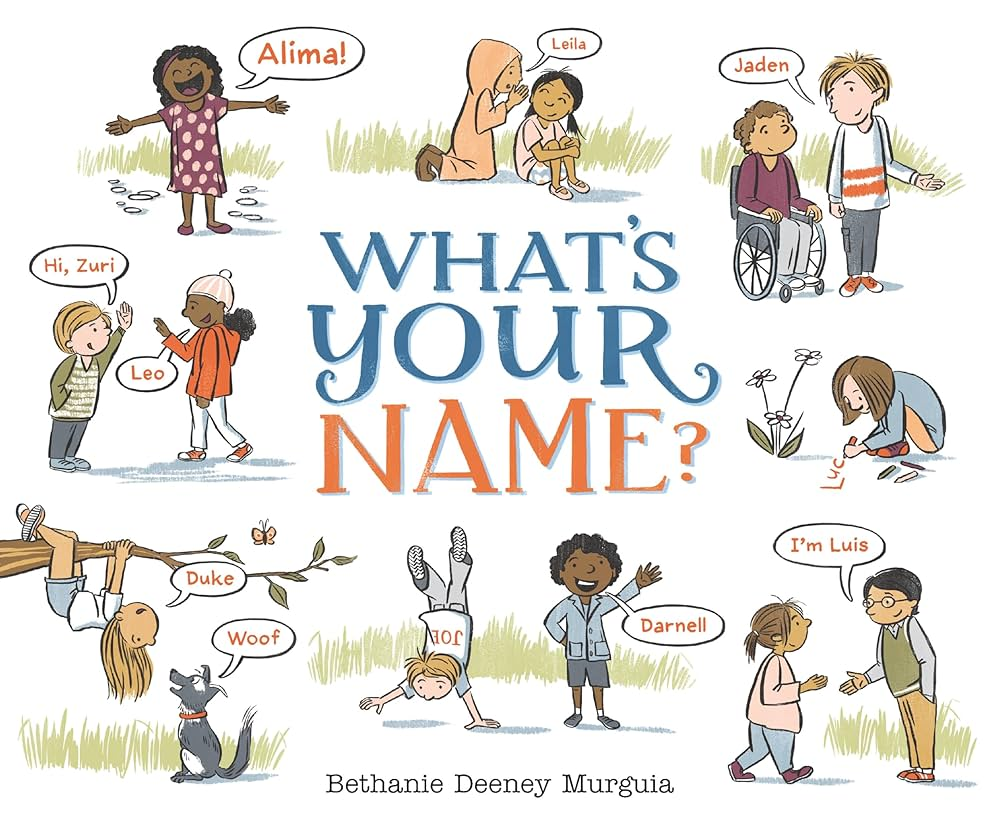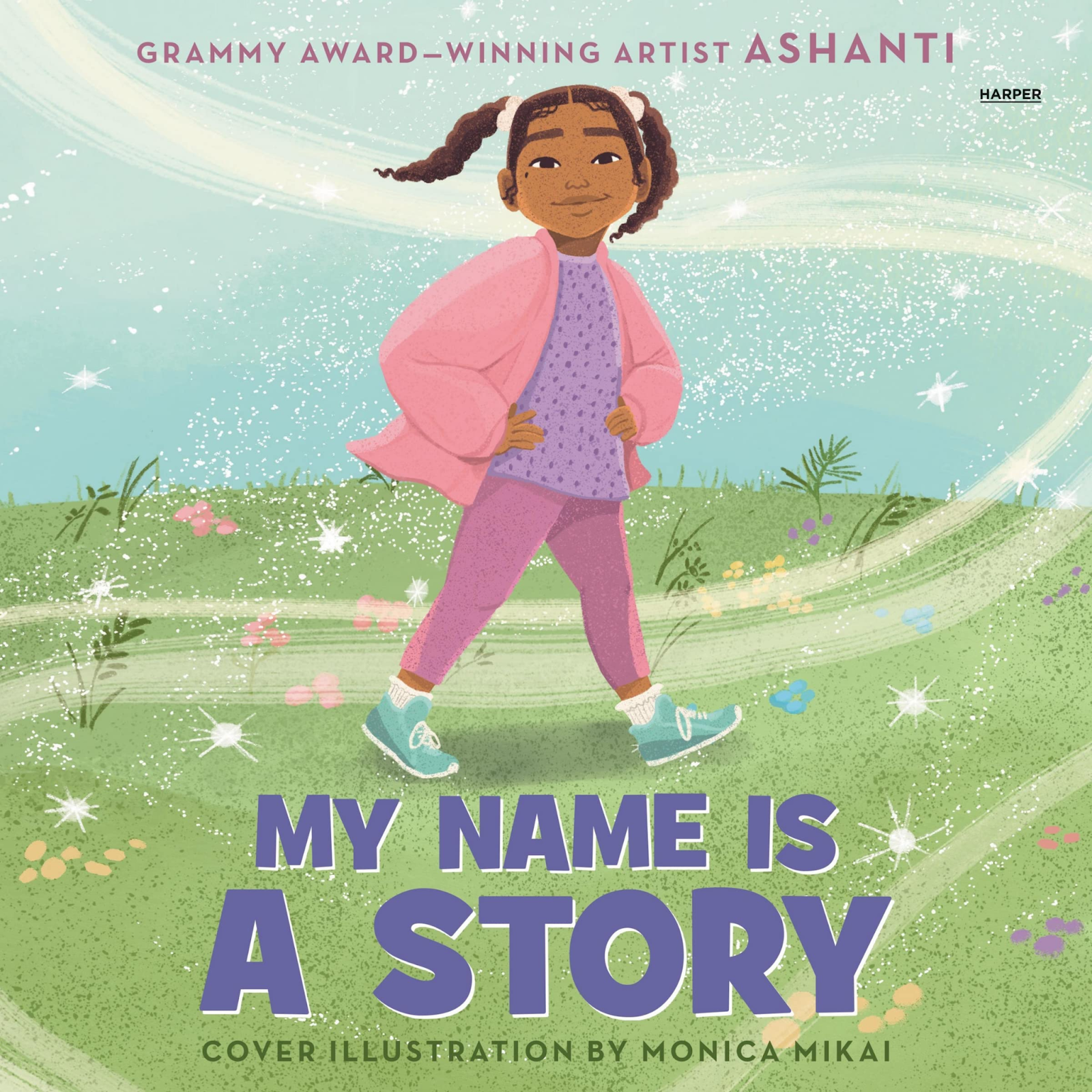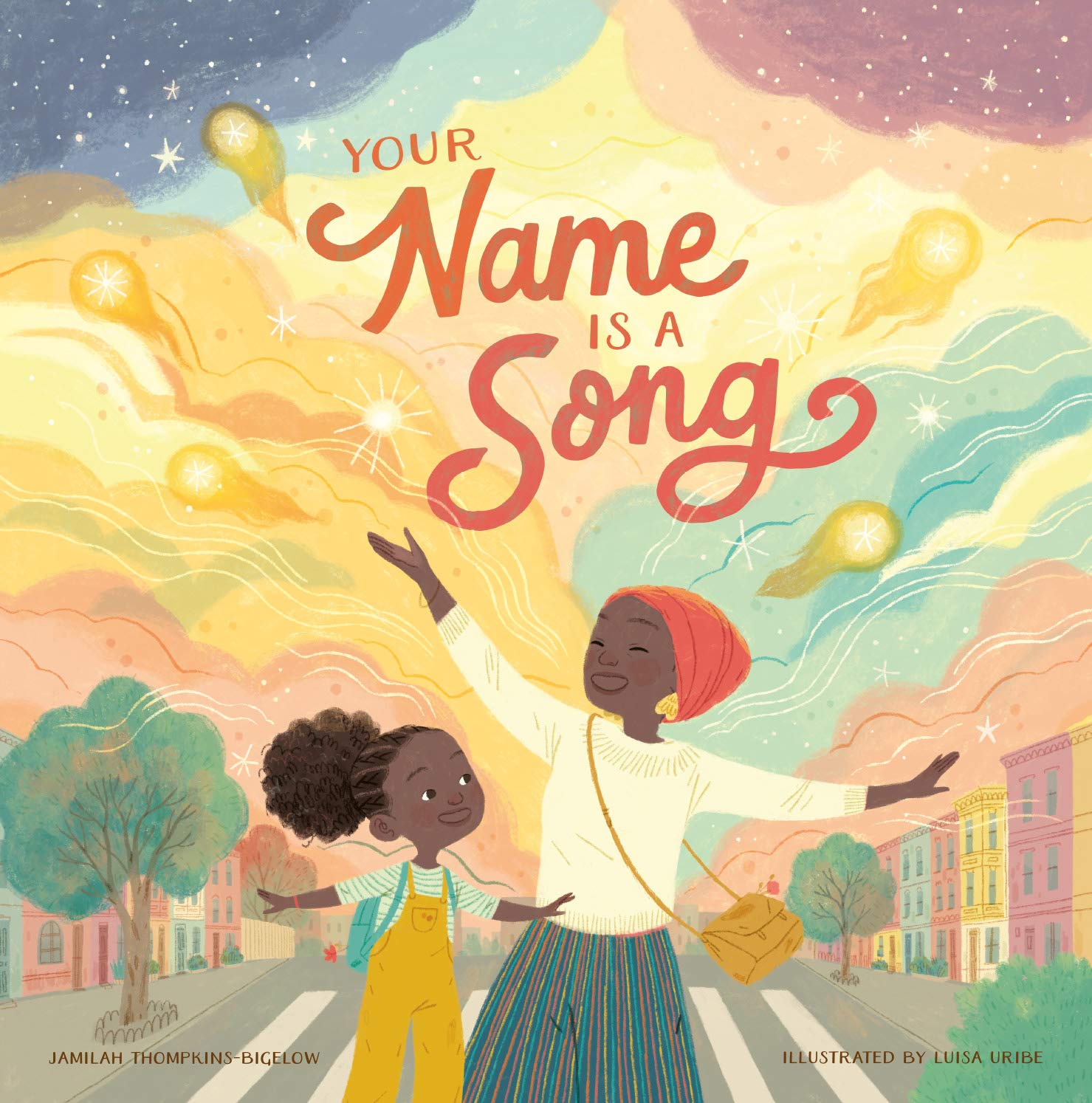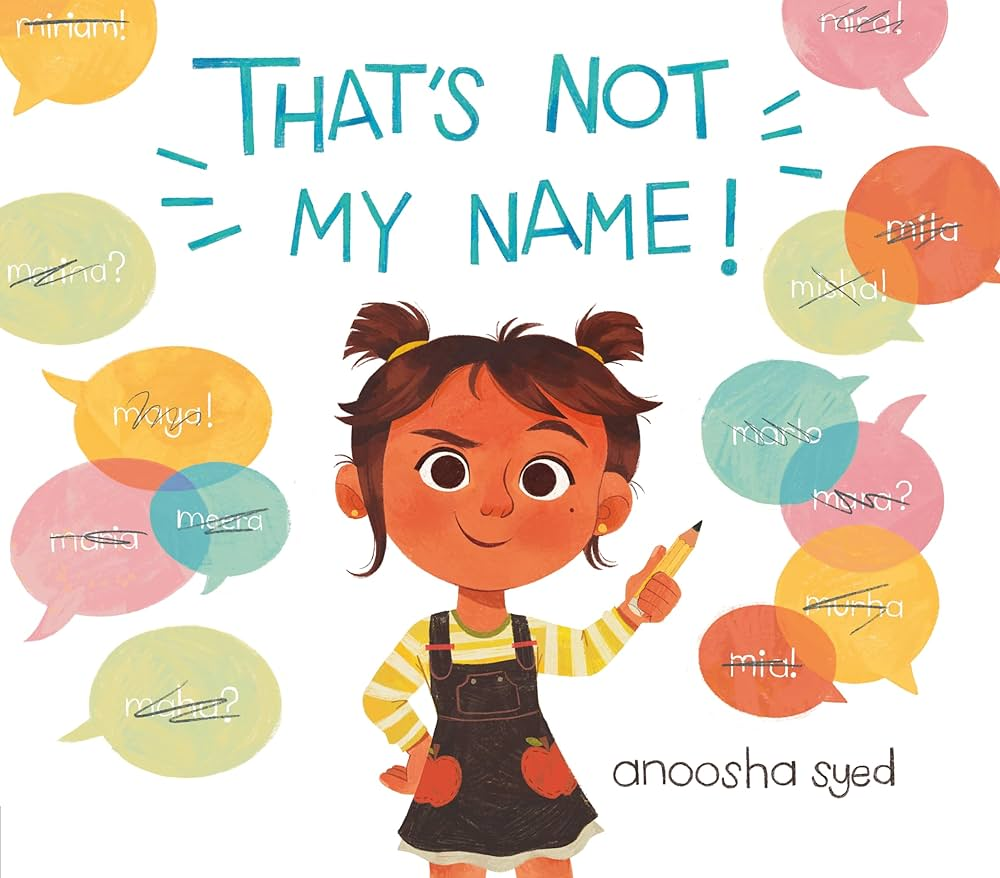By Lourdes C., 2026 CLEL Bells Committee Member
Names are unique to each person. They have meanings, tell stories, and can even be songs. Names are conversation starters. Needless to say, names are important to everyone.

What’s Your Name? by Bethanie Deeney Murguia was one of the titles that made it to the TALK category in the 2023 CLEL Bell Awards Shortlist. In this adorable book, the author illustrates children celebrating their names and encourages readers to share their names proudly. This book is also a great example of people having ownership of their name to make changes through time as they see fit, whether that be changing a nickname to trying out new names altogether.
While children understand that names can be unique and amazing conversation starters, pronunciation is extremely important. Names are part of people’s identities from birth and should be respected.

In My Name is a Story, Ashanti views her name as hard to pronounce by both her teacher and her classmates. When she comes back home and speaks with her mom, Ashanti learns that her name represents many beautiful things and it’s special. She accepts that her name is similar to a story: it can be read, told and loved again and again.
Turn Your Name into a Story With an Acrostic Poem!

In Your Name is a Song, a little girl is frustrated that nobody can say her name correctly. She doesn’t want to return to school. However, mom helps her see how each name is a song that can be sung by everyone. The little girl returns to school with the new knowledge of singing names and she passes that knowledge to her teacher and classmates.
Your Name is a Song Video — The Innovation Press
Your Name is a Song | NEA

That’s Not My Name follows Mirha on her first day of school. Throughout the entire day, everyone has a difficult time pronouncing her name. Later that afternoon, Mirha’s mom explains how she got her name and why it is special. Mirha returns to school with the courage of correcting those who mispronounce her name.
All names are unique in their own way. Teaching children the importance of their names, meanings, songs, poems, and setting the boundary of respect around correct pronunciation is key in child identity building.
